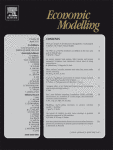Mae'r cynnwys hwn ar gael yn Saesneg yn unig.
Overview
This project utilised a range of econometric techniques to investigate the nature of the relationship between the domains of individual subjective wellbeing, individual and household characteristics, work/life circumstances, and a range of indicators related to the measurement of social cohesion and civil society.
The main UK data sets used by the WP included: Understanding Society and the British Household Panel Survey; the Annual Population Survey (APS); the British Social Attitudes Survey (BSAS); the National Citizens Survey (NCS: England and Wales); the Family Expenditure Survey (FES); and the National Survey for Wales.
The WP drew on a range of econometric techniques, dependent on the characteristics of the data used but including the both cross section and panel data methods used in the analysis of ordered response models. Exploratory factor analysis (EFA) and principal component analysis (PCA) were used to develop an index of social cohesion. Models that account for common error components across the different domains of subjective wellbeing were also used, which develop and extend the methodological framework outlined in van Praag et al., (2003, and 2008). The project also linked in with ADRC Wales.
Research Questions
- Consider the spatial diversity of subjective measures of wellbeing in the UK and how these have evolved overtime.
- To develop a spatial index of social cohesion comprising of distinct domains that include measure of social capital, civil society, and social exclusion.
- To model different domains of subjective wellbeing and consider the extent to which different domains contribute to an overall measure of life satisfaction or wellbeing.
- To consider the effect that spatial measures of social cohesion and civil society have on subjective measures of wellbeing and their evolution overtime.
- To consider the part played by ‘people’ or ‘places’ in explaining spatial variation in wellbeing and the extent to which measures of social cohesion and civil society mitigate the effects of personal circumstances typically associated with lower levels of subjective wellbeing (e.g. deprivation measures including income, health, and work poverty).
Outputs
- Outputs were in the form of journal articles, newsletters and policy briefing papers to reach both academic and non-specialist audiences.









